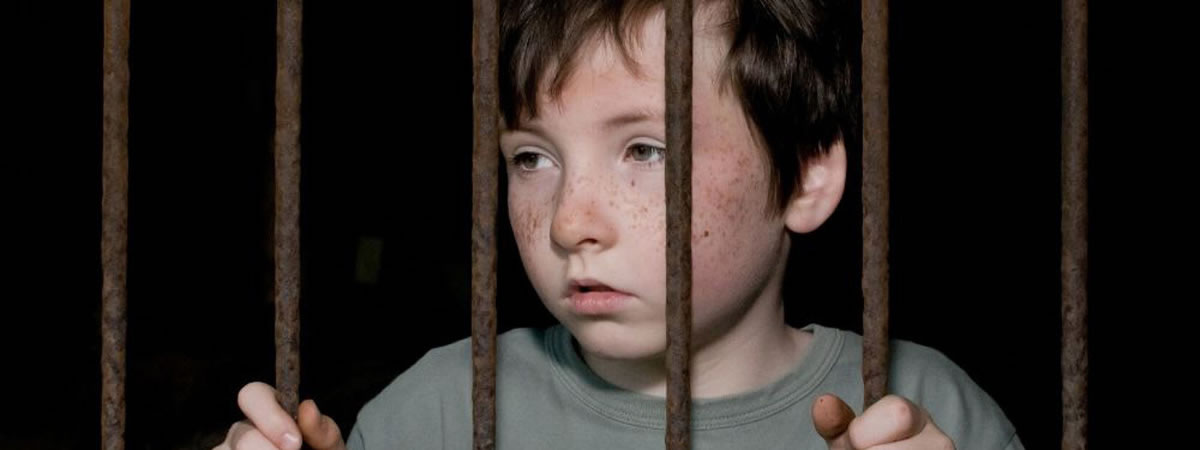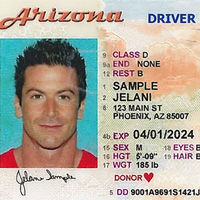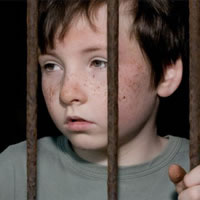My Child Committed A Serious Crime, Will they be tried as an adult?

My Child Committed A Serious Crime, Will they be tried as an adult?
It is every parents worst nightmare to get a phone call in the middle of the night saying that your child has committed a serious crime. A call that will send many parents to their knees from heartbreak and not knowing what in the world to do to help their child. The American legal system has so many different rules and laws around this topic, that taking the time to understand them or hire someone who does will make a huge difference for your child's case.
No parent ever wants to imagine their child in such an awful predicament and it is hard to know what steps to take next to get your child the help or assistance they deserve. In the United States there are two different ways your child can be tried, as an adult or a juvenile and both situations have information you need to know to get help for your child. We will dissect the advantages and disadvantages of both systems, the age your child will be tried as an adult, and more in the article below.
When can children be tried as adults?
When it comes to juvenile court, there are two main reasons a juvenile will be taken into custody. The two reasons are that they have committed a delinquent act or committed an act that indicates they need supervision.
There are multiple factors that will decide if a child is tried as an adult in the U.S and whether and it comes down to each specific case as well as separate state laws. State laws for adult versus juvenile as well as the ages for both vary from state to state so make sure to look up your specific state's information.
A judge can decide to waive or transfer a case to adult court if he/she sees that there is a reason to do so. Some of the reasons a child's case can be transferred to adult court and therefore tried as an adult includes, but is not limited to the seriousness of the crime, the criminal history of the child, as well as the age of the child.
For example, if a child has done a serious crime then the case may be quickly transferred to an adult courtroom. It comes down to the judges discretion and if a child has been to juvenile multiple times, done counseling, and still performs violent acts then a judge will be more likely to move the case up to adult court.
In the opposite way, some states allow children to try and persuade the judge to let them be tried in juvenile court and is based on multiple factors such as good behavior, no criminal history, etc.
What age are children tried as adults in court?
When it comes to age, all across the United States different states have different laws concerning what age children will be tried or transferred to adult court. For the most part, kids are considered juveniles if they are under the age of 16 or 18, although these ages are different for each state.
Any child over the age of 18 will be automatically tried as an adult in all states. For example, in New York juveniles are considered any child under the age of 16 and over the age of 7. In many states, if a child commits a serious crime and is near the juvenile age cut off, they are more likely to be transferred up to be tried at an adult court.
In some states there is a certain age a child must be in order for a judge to use a waiver or transfer, but in many cases age does not matter. So, If a child commits a horrendous and brutal crime at age 10 and the judge thinks it is worthy to be tried as an adult, a judge can do such in states that allow transfers no matter the age.
In many states, there are certain laws that have certain crimes always move up to adult court no matter what age the child is. These crimes include extreme crimes such as murder and it is common in many states for a child charged in murder to instantly be moved up to adult court.
What is the difference between juvenile court and adult court?
When it comes to the US there are two major systems, the juvenile and adult court system. Juvenile Court has more options for juveniles such as enacting a curfew or sending them to rehabilitation. Juvenile court systems focus on rehabilitation and redirecting the child and trying to set them up to succeed.
There are advantages and disadvantages to having your child be tried in adult court, and oftentimes the disadvantages may outweigh the good. One advantage to having your child tried in adult court is the chance that the judge may be more lenient towards a minor.
Another advantage and a reason that your attorney may want your child tried in adult court is for your child to have a right to a jury trial. A jury trial will allow your child's case to be presented before a jury, who are typically more kind and empathetic toward a minor. A negative side of having your child tried in adult court is that your child most likely will have harsher sentences such as serving time in a jail or prison.
Another difference between adult court for juveniles compared to actual adults is that in most states they cannot get the death penalty or life without parole, but are still likely sentenced to years of jail time.
Adult courts may present more issues for juveniles who do not understand how to reason and understand the laws of the court system. Going into adult court and not understanding what is expected of you and how you should defend yourself and explain yourself well, may present an issue to minors or juveniles.
What to do first if your child commits a serious crime?
If your child has committed a serious crime it is incredibly important to stop and get your child an attorney in court. Attorneys know the laws for how your child will be tried and will always do what is best for your child and fight on their behalf. Taking the time to get a knowledgeable attorney before you talk to others and make decisions will help guide you on what to do next and know what decisions to make for you and your child.
When dealing with juvenile court and especially adult court, having someone that knows your system and knows what your child needs will be an absolute gamechanger.
Conclusion
Having your child end up being tried as a juvenile or an adult in the American legal system is a terrifying place to be. The age at which your child will be tried as an adult versus a juvenile depends on the state the crime was committed and varies from a max age of 16-18. There are multiple ways you can help your child and the first step is to hire a knowledgeable attorney to give you a good foundation on what step to take next.


















